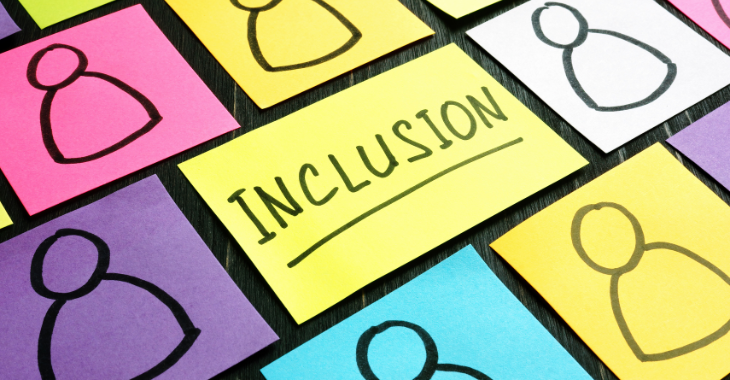Family carers: the forgotten victims of inclusion policies

Whatever their size or sector of activity, more and more companies and organizations are recognizing the importance of creating work environments where every employee feels valued and respected. Yet, in their efforts to promote inclusion, they often forget to take an interest in family carers.
Whatever their size or sector of activity, more and more companies and organizations are recognizing the importance of creating work environments where every employee feels valued and respected. Yet, in their efforts to promote inclusion, they often forget to take an interest in family carers.
The main reason for this is their difficulty in identifying and therefore registering them. Indeed, many caregivers are unaware that they themselves fall into this category. For others, and this is the second difficulty, discretion seems the best option. Indeed, how can one report one's own situation when dependency is a social taboo and disability generates a number of preconceived ideas? Many prefer to keep their status a secret, for fear of stigmatization or professional repercussions. However, these employees who "provide unpaid care to a family member or close friend suffering from illness, disability or loss of autonomy" deserve special attention. They are confronted with an unwanted upheaval in their lives, forcing them to respond to unique challenges.
Family caregivers: a silent group
This unacknowledged reality inevitably delays any possibility of corporate awareness. What can't be seen...doesn't exist, and without the ability to identify caregivers among their employees, no action or policy can be taken.
And yet, the proportion of this population will continue to rise over the next few years, making it all the more important to take the initiative. The latest figures published already make you dizzy. In 2021, 9.3 million people declared that they provided regular assistance to a loved one with a disability or loss of autonomy [1]. Family caregivers account for 20% of employees [2]. This percentage peaks between the ages of 55 and 64, but it is important to note that employees are becoming caregivers at younger and younger ages [3]. The expected ageing of the population could put a strain on caregivers of the elderly.

The challenges facing caregivers at work
Today, few companies and organizations address the specific needs of these dedicated employees and integrate them into their parenting or senior policy. Yet the challenge of reconciling personal and professional life is a major one for these caregivers, who, in addition to their professional responsibilities, take on care tasks ranging from administering medication to keeping track of medical appointments, managing the daily activities of their loved one requiring assistance, not forgetting the considerable administrative work involved in almost every one of these tasks. Most of them have to juggle their work, caregiving responsibilities and other aspects of their personal lives, which, in the long run, can lead to an exhausting mental and emotional burden. Indeed, the impact of being a carer on work is numerous. Among the most common are absenteeism due to caring responsibilities, difficulty concentrating due to stress and exhaustion, and difficulty progressing in their careers due to frequent absence or reduced working hours.
The absence of specific inclusion policies means that these employees may be left behind. For example, they may not benefit from flexible working arrangements, paid leave or fringe benefits that would enable them to better balance their caring responsibilities with their professional lives.
The importance of including family carers
It is crucial that companies recognize the value of family carers as employees in fragile situations, and put in place appropriate inclusion policies. CSR policies, where they exist, are slowly beginning to incorporate these notions: this may include the introduction of paid leave for carers, the possibility of working remotely or flexible working hours, as well as support services for employees to help them manage their dual role. But these first steps are still too timid.

What measures are available to companies?
In the workplace, taking caregivers into account means raising awareness and helping them to recognize themselves as such, as well as psycho-educating all those involved, so that caregivers are able to support their loved ones in a respectful, understanding and altruistic working environment. For those companies and organizations that have dared to take the plunge, the social impact of their decision has been immediate. Among the positive effects are a stronger sense of cohesion, greater social justice, the possibility of rewarding the commitment of their employees, and the securing of career paths at the very heart of the company. The result? A stronger employer brand that attracts and retains talent throughout their careers.
Finally, let's not forget that family carers are a valuable component of the workforce. It's time to ensure that they are no longer overlooked in inclusion policies. Companies have a role to play, but cannot meet this challenge alone. Ambitious government measures are needed to support their efforts.
Sources :
1 - Source étude DRESS L’enquête Vie quotidienne et santé https://drees.solidarites-sante.gouv.fr/publications/etudes-et-resultats/93-millions-de-personnes-declarent-apporter-une-aide-reguliere-un
2 - Prev&Care
3 - Sources OCIRP https://www.francetvinfo.fr/replay-radio/c-est-mon-boulot/info-franceinfo-emploi-en-france-on-devient-aidant-familial-de-plus-en-plus-jeune_5372098.html



